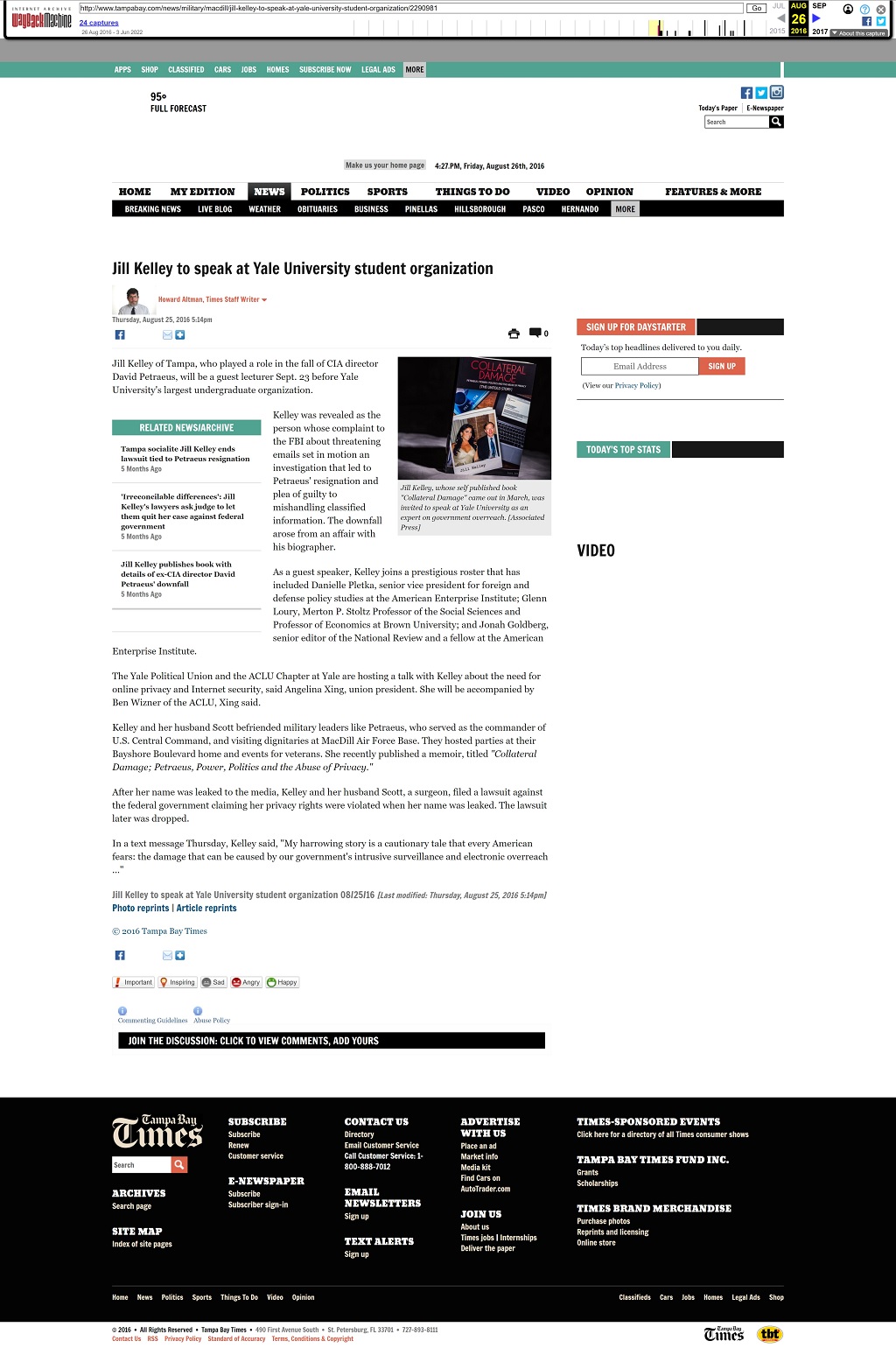
News / Military
By Howard Altman / Tampa Bay Times / August 25, 2016
PHOTO: Jill Kelley, whose self published book “Collateral Damage” came out in March, was invited to speak at Yale University as an expert on government overreach. (Associated Press)
Jill Kelley of Tampa, who played a role in the fall of CIA director David Petraeus, will be a guest lecturer Sept. 23 before Yale University’s largest undergraduate organization.
Kelley was revealed as the person whose complaint to the FBI about threatening emails set in motion an investigation that led to Petraeus’ resignation and plea of guilty to mishandling classified information. The downfall arose from an affair with his biographer.
As a guest speaker, Kelley joins a prestigious roster that has included Danielle Pletka, senior vice president for foreign and defense policy studies at the American Enterprise Institute; Glenn Loury, Merton P. Stoltz Professor of the Social Sciences and Professor of Economics at Brown University; and Jonah Goldberg, senior editor of the National Review and a fellow at the American Enterprise Institute.
The Yale Political Union and the ACLU Chapter at Yale are hosting a talk with Kelley about the need for online privacy and Internet security, said Angelina Xing, union president. She will be accompanied by Ben Wizner of the ACLU, Xing said.
Kelley and her husband Scott befriended military leaders like Petraeus, who served as the commander of U.S. Central Command, and visiting dignitaries at MacDill Air Force Base. They hosted parties at their Bayshore Boulevard home and events for veterans. She recently published a memoir, titled “Collateral Damage; Petraeus, Power, Politics and the Abuse of Privacy.”
After her name was leaked to the media, Kelley and her husband Scott, a surgeon, filed a lawsuit against the federal government claiming her privacy rights were violated when her name was leaked. The lawsuit later was dropped.
In a text message Thursday, Kelley said, “My harrowing story is a cautionary tale that every American fears: the damage that can be caused by our government’s intrusive surveillance and electronic overreach …”
Wayback image

